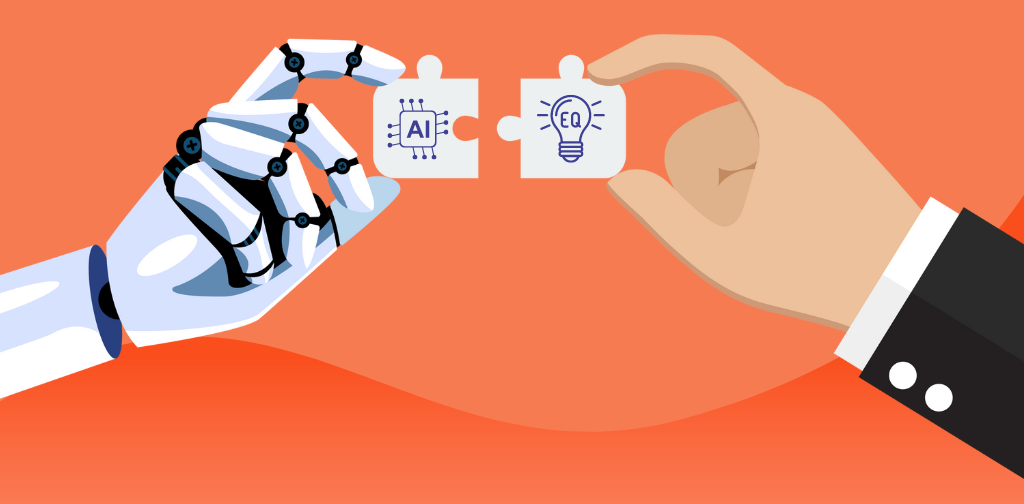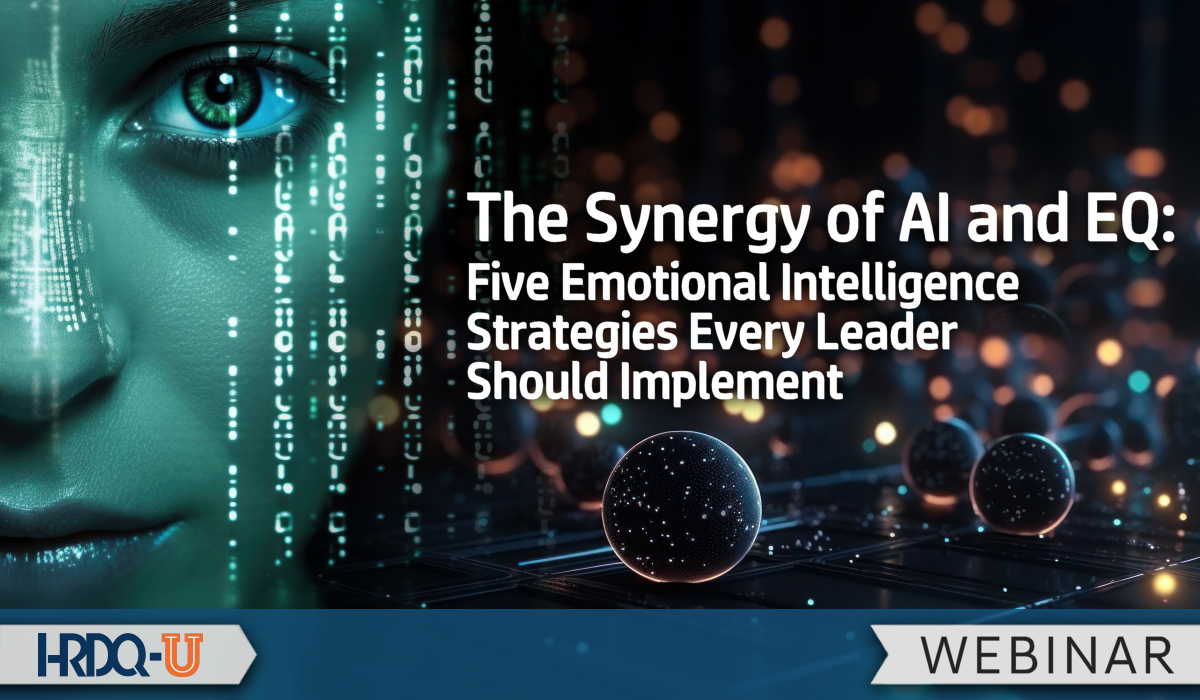5 Reasons EQ Is Important in the World of AI
1. Emotionally Intelligent Leaders Are Resilient
Organizations face constant changes and challenges, and disruptive innovations such as AI make the future uncertain. Leaders with high levels of EQ are more resilient and adaptive and can manage change effectively. They can inspire and motivate their teams and handle the ambiguity and complexity of change.
2. EQ Is Essential for Human Interactions
In a world where virtual communication is becoming the norm, the ability to connect with others on an emotional level is much needed. EQ is essential in building strong relationships, creating trust and loyalty, resolving conflicts, and managing diverse perspectives effectively. Unlike AI, humans can sense emotions and pick up nonverbal cues, which is vital for improving collaboration and communication.
3. EQ Enhances Creativity and Innovation
Innovation and creativity are crucial for businesses to stay ahead in this ever-changing world. People with high EQ have a greater ability to think outside the box, generate new ideas, and solve complex problems. They can also empathize with customers, identify unmet needs, and develop solutions that exceed expectations.
4. EQ Increases Employee Engagement and Productivity
Studies have shown that engaged employees are more productive and generate better results. Leaders with high EQ can create a positive work culture that fosters creativity, respect, and appreciation. They can also connect with employees personally, understand their motivations, and create an environment that nurtures their talents and skills. This is critical in the future of work, where employee engagement and retention are significant challenges.
5. EQ Is Key for Social Responsibility and Ethics
As AI expands, ethical issues such as privacy breaches, algorithmic biases, and job displacement are becoming more significant concerns. EQ is crucial in addressing these issues by balancing technological advancements with social responsibility. Leaders with high EQ can exercise empathy, consider different perspectives, and prioritize the long-term benefits for all stakeholders. They can also communicate the importance of ethical practices to their teams and ensure the ethical use of AI.
Elevating Leadership in the AI Era: The Imperative Role of EQ
As AI continues to transform the way we work, the importance of EQ has never been greater. Emotionally intelligent leaders can manage the complexities and uncertainties of change while fostering a culture of innovation, engagement, and ethics. While AI can help us perform complex tasks, human beings have the unique ability to connect with others emotionally, a key element for effective leadership and collaboration. In conclusion, business leaders, HR professionals, coaches, and consultants must realize the significance of EQ in the age of AI and develop their EQ skills to prepare themselves and their organizations for the future.













